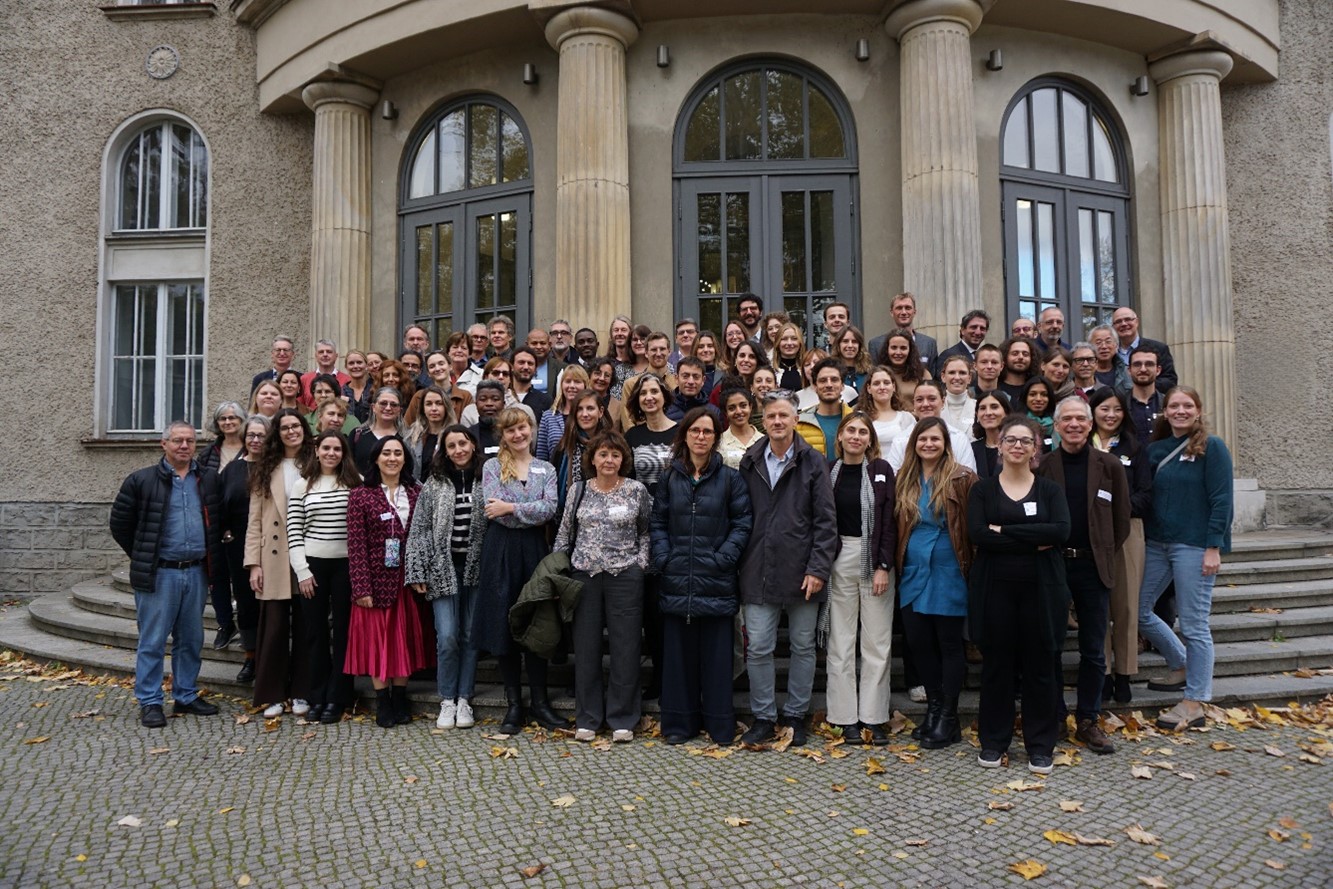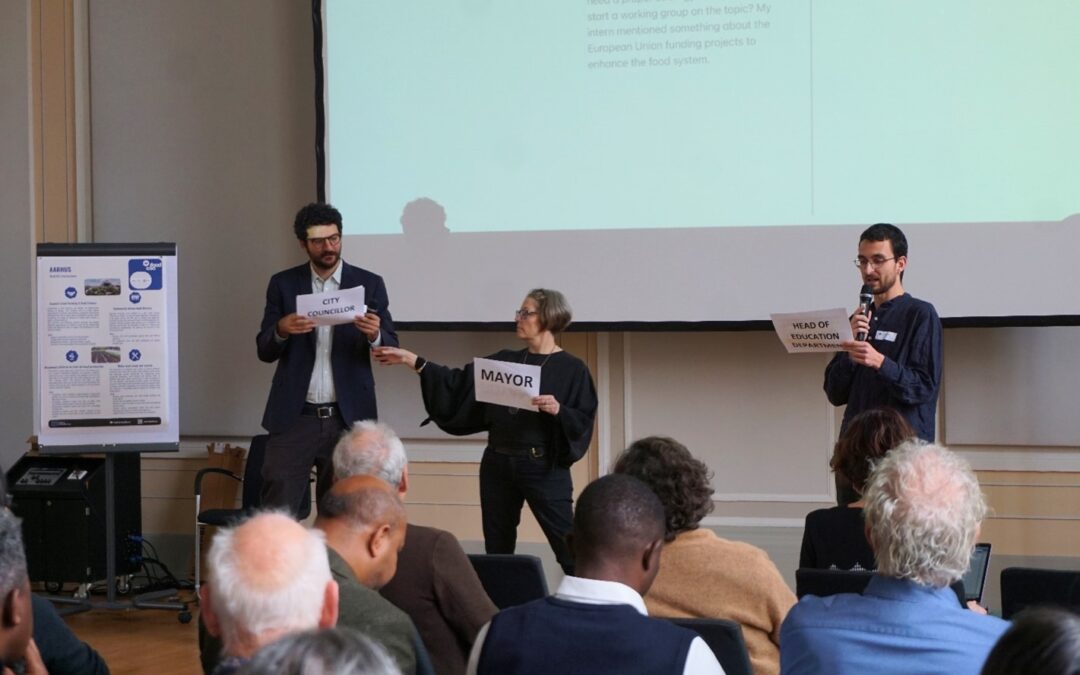In October, FUSILLI participated in the FoodCLIC Consortium International Workshop at Humboldt University in Berlin. As the project nears its conclusion, FUSILLI Consortium members Danielle Wilde, Jonathan Luger, Einar Braathen, and myself, Diego Fallah, shared the successes and challenges of the initiative with food system experts, researchers, policymakers, and active citizens from across the EU and beyond. Together, we exchanged best practices and focused on the role of municipalities in implementing innovative actions towards a more sustainable food system.
Using Role-Play to Illuminate Systemic Challenges
Our presentation at the workshop took on a dynamic approach, using a role-play exercise to break the ice. This introduction was designed to mirror a real-world scenario where an engaged citizen confronts a city department head about the food served in public canteens. This seemingly simple question quickly escalates into a broader discussion, highlighting the various levels of responsibility and decision-making involved in food system public governance.
“Systems are resistant”
During an inspiring presentation, FoodClic coordinator Jacqueline Broerse stated that “systems are resistant, you are up against something’’. According to her, real-life interventions, could create alternative practices to challenge the dominance of the ‘’regime’’. This is very important in order to create agency and leverage points towards pathways to change. This also works for FUSILLI, where real-life interventions where called ‘’innovative actions’’ and created a catalogue of experiences across different cities that can be broadened and scaled up.
Collaborative Insights with AfriFOODlinks
One of the workshop’s highlights was hearing from colleagues involved in the AfriFOODlinks Project, who shared their valuable experiences and insights from working with diverse communities across Africa to support food system resilience. The project is engaged in building sustainable food networks that include local communities, foster cross-continental and decolonial learning, and promote food sovereignty. Learning from AfriFOODlinks reinforced the importance of community engagement and inclusive approaches in building resilient food systems.
FUSILLI Insights: Scaling Up Local Initiatives for Broader Impact
Following the plenary session, we participated in different panels. I shared some experiences and insights on expanding pilot food innovations through legal frameworks, the mainstreaming of the food system in public administration, and governance innovations such as Food Councils, Working Groups and Food System Departments.
Looking Ahead
The FoodCLIC International Workshop was a good opportunity to showcase the work done in FUSILLI during the past four years in cities such as Differdange in Luxembourg, Kolding in Denmark and Rome. Events like these highlight the importance of building a unified voice for sustainable food initiatives, working with both local communities and international networks. It was also a good preparation for the FUSILLI Final Conference, happening soon in Nilüfer in Turkey.

Group picture at the event
Author and photo credits: Diego Fallah, Differdange Living Lab
